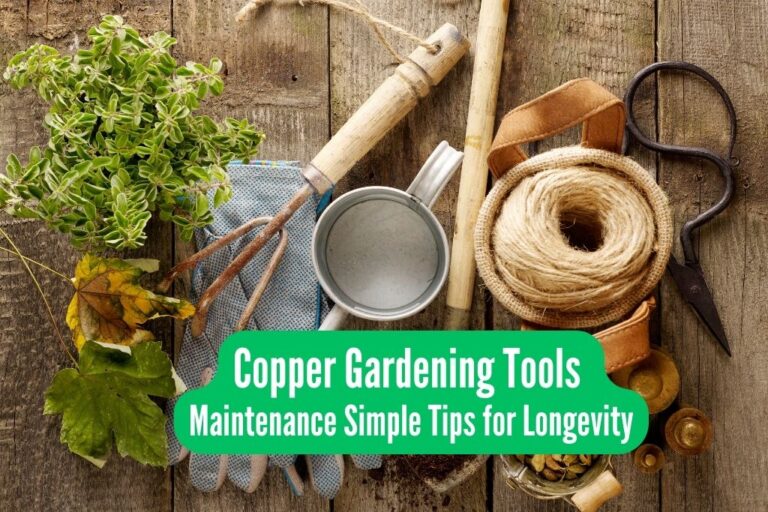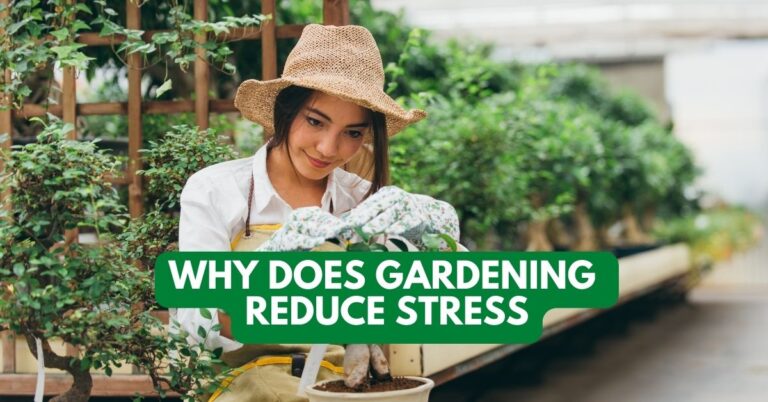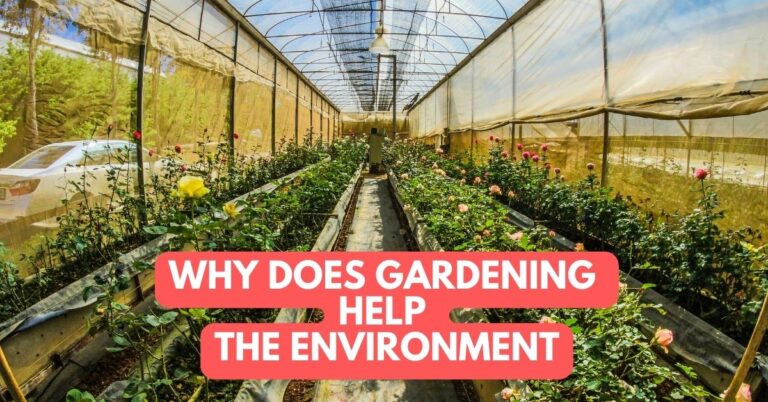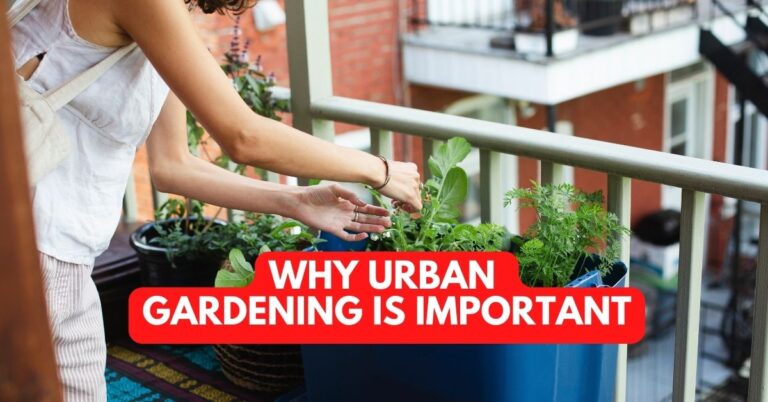How Copper Gardening Tools Can Improve Your Soil Health
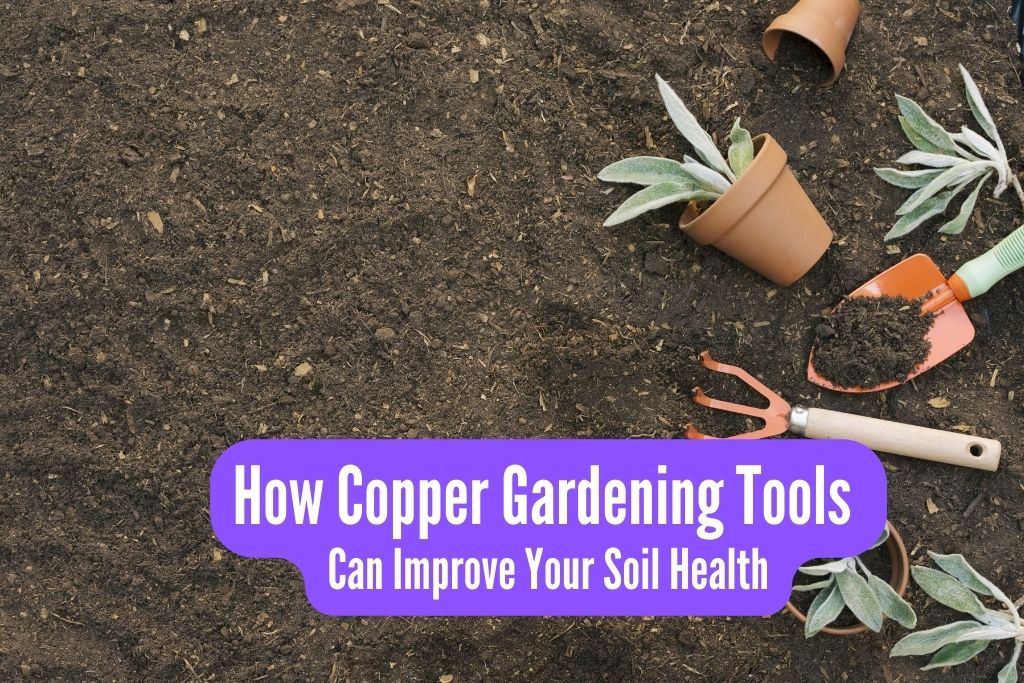
Copper gardening tools have been gaining popularity amongst gardeners in recent years and for good reason. Not only do they possess a natural aesthetic appeal, but they also claim to provide numerous benefits to both the user and the environment they’re tending to. In this blog post, we will delve into the world of copper gardening tools to explore their advantages, particularly when it comes to improving soil health. Soil is the foundation of any bountiful garden, making its well-being crucial for plants’ and crops’ growth and overall yield. By understanding the role of copper gardening tools in maintaining and enhancing soil conditions, you might just find your new favorite gardening companion, and ultimately, transform your garden from ordinary to extraordinary.
What are Copper Garden Tools and Their Benefits
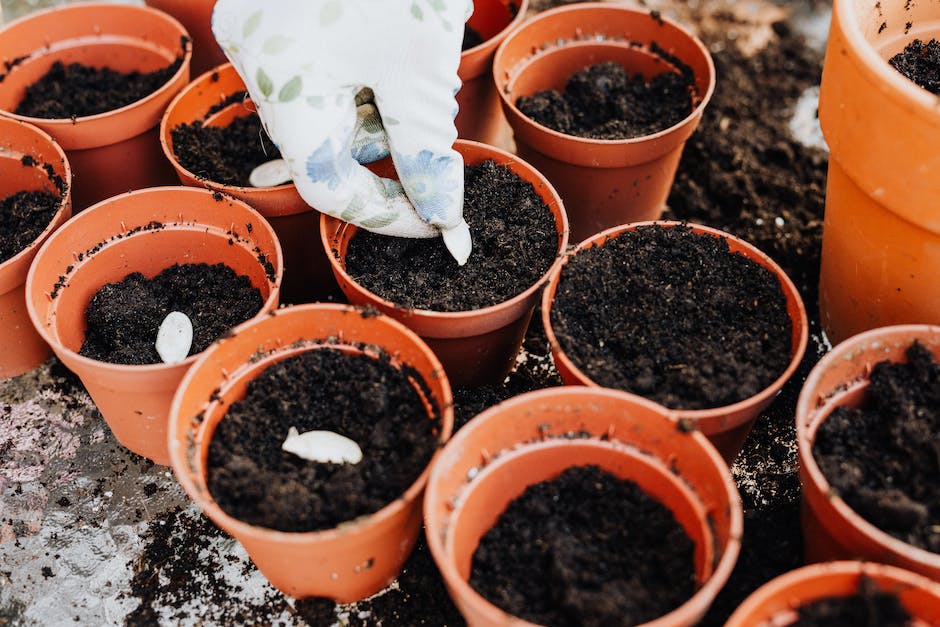
Copper gardening tools are a unique and innovative addition to the world of horticulture. Made from a blend of solid copper and other metals, these tools offer several benefits that conventional steel or iron tools cannot provide. Not only do they have a beautiful design and solid construction, but they also offer surprising improvements to soil health.
To understand the benefits of copper garden tools, it is essential to know what they are and how they differ from traditional tools. High-quality copper alloy is used to forge these beautiful, durable, and long-lasting tools that include spades, trowels, hoes, and rakes. The copper and bronze alloy used in their construction not only increases their strength, but also creates a stunning patina that naturally protects the tools from corrosion and wear.
One of the key benefits of using copper gardening tools is their positive impact on soil health. The presence of copper in the soil contributes to the growth of beneficial microorganisms, which are essential for healthy plant growth. When using copper tools, small particles of copper get deposited in the soil, increasing the mineral content and improving the soil structure. The trace amounts of copper released into the soil during gardening also act as a natural fungicide, getting rid of diseases that can cause harm to your plants.
Another advantage of copper garden tools is their ability to deter slugs and snails. As these common garden pests come into contact with the copper, they experience an unpleasant reaction that encourages them to leave the area. This makes copper tools a natural and chemical-free solution to pest control in your garden.
Copper gardening tools also play a crucial role in reducing soil compaction. These tools glide through the earth more efficiently than their steel counterparts, and as a result, they help reduce soil compaction and minimize damage to the delicate root systems of plants. The more streamlined design of copper tools also helps minimize friction, allowing for more efficient and effortless gardening.
In conclusion, the unique properties and benefits of copper garden tools make them a valuable addition to any gardener’s toolkit. As they promote soil health, discourage pests, and require less effort during use, there is little doubt that copper gardening tools are worth the investment. Not only will your plants thank you for it, but your garden will be teeming with life and vitality as a result of this simple change in your gardening habits.
The Science Behind Copper and Soil: Oligodynamic Effect
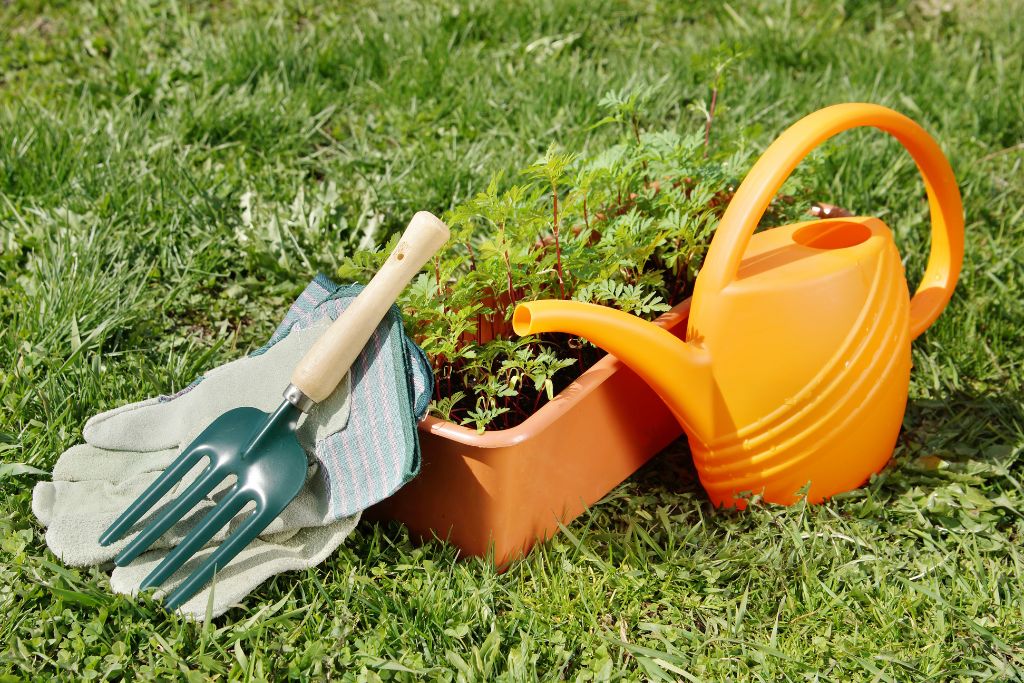
Copper gardening tools have intrigued gardeners and horticulturists for centuries, not only for their beautiful, distinctive appearance but also for their potential to improve soil health. But how does the presence of copper in gardening tools contribute to soil health? The oligodynamic effect offers a scientific explanation for this phenomenon.
The oligodynamic effect is a microbiocidal property held by certain metals, such as copper, which effectively kill bacteria, fungi, and other inimical microorganisms at minute concentrations. This biocidal characteristic is primarily attributed to the copper ions released when the metal comes into contact with moisture.
These copper ions have a unique chemical behavior that enables them to penetrate the cell walls of potentially harmful microorganisms. Once inside the cell, the copper ions interact with the sulfur compounds present in the vital metabolic processes of the microorganism. This interaction inhibits the enzyme activity within the microorganism, leading to a disruption in its vital life processes, and ultimately, its death.
As you cultivate and work the soil with copper tools, the copper ions released into the soil can control the growth of certain harmful microbes. This creates an environment that is more conducive to the flourishing of beneficial microorganisms, such as nitrogen-fixing bacteria that help enhance soil fertility. These friendly microbes play a key role in breaking down organic matter into essential plant nutrients and can help maintain a robust soil ecosystem.
It’s important to note that while copper gardening tools can produce a healthier soil environment, the use of these tools should be accompanied by good gardening practices, such as crop rotation, composting, and irrigation management. These practices contribute to a more sustainable and successful gardening experience.
In conclusion, the oligodynamic effect of copper gardening tools offers a natural and sustainable method for enhancing soil health. By using these tools, gardeners can support a thriving soil ecosystem and cultivate healthier plants, ultimately reaping the rewards of increased yield and improved crop quality.
Enhancing Soil Microbial Activity with Copper Tools
As we delve deeper into the world of copper gardening tools, one of the most significant benefits they provide is their ability to enhance soil microbial activity. Soil health is often determined by the presence and activity of various microorganisms that help in breaking down organic matter, releasing essential nutrients, and protecting against diseases. By promoting this crucial aspect of soil health, copper tools can also contribute to the overall success of your gardening endeavors.
Copper has been found to encourage the growth and development of beneficial microbes in soil. This is primarily due to the oligodynamic effect, a phenomenon in which metal ions in small amounts exert a powerful biocidal effect on a range of pathogenic microorganisms. Copper, in particular, has the unique ability to disrupt the cell membranes of harmful microbes and bacteria, effectively eliminating them from the soil. This allows good microbes, such as mycorrhizal fungi and nitrogen-fixing bacteria, to work more efficiently without the constant threat of disease-causing organisms.
With copper gardening tools, the metal is directly in contact with the soil, allowing for a slow release of copper ions that help maintain a healthy balance between the beneficial and harmful microorganisms. It’s important to note that these tools do not release a significant amount of copper into the soil, which means there’s minimal risk of copper accumulation and potential toxicity.
Another advantage of using copper tools is their ability to improve soil structure. By reducing the number of disease-causing organisms in the soil, beneficial microorganisms can work more efficiently in breaking down organic matter, leading to improved soil aeration and drainage. Good soil structure promotes root growth and nutrient uptake, ultimately fostering healthier and more robust plants.
Additionally, copper gardening tools can help prevent the transfer of diseases from one area of the garden to another. Traditional gardening tools made from iron or other metals may harbor harmful pathogens on their surfaces, inadvertently spreading diseases as you work in your garden. Since copper has natural antimicrobial properties, using these tools can minimize the risk of cross-contamination between different plants and garden beds.
In conclusion, incorporating copper gardening tools into your regular gardening routine can lead to healthier soil by enhancing microbial activity and maintaining a balance of microorganisms. With improved soil structure and reduced risk of disease transfer, you can expect better plant growth and ultimately, a flourishing garden. Give copper tools a try and experience the difference they can make for your soil health and gardening success.
Reducing Harmful Pests and Soil-borne Diseases
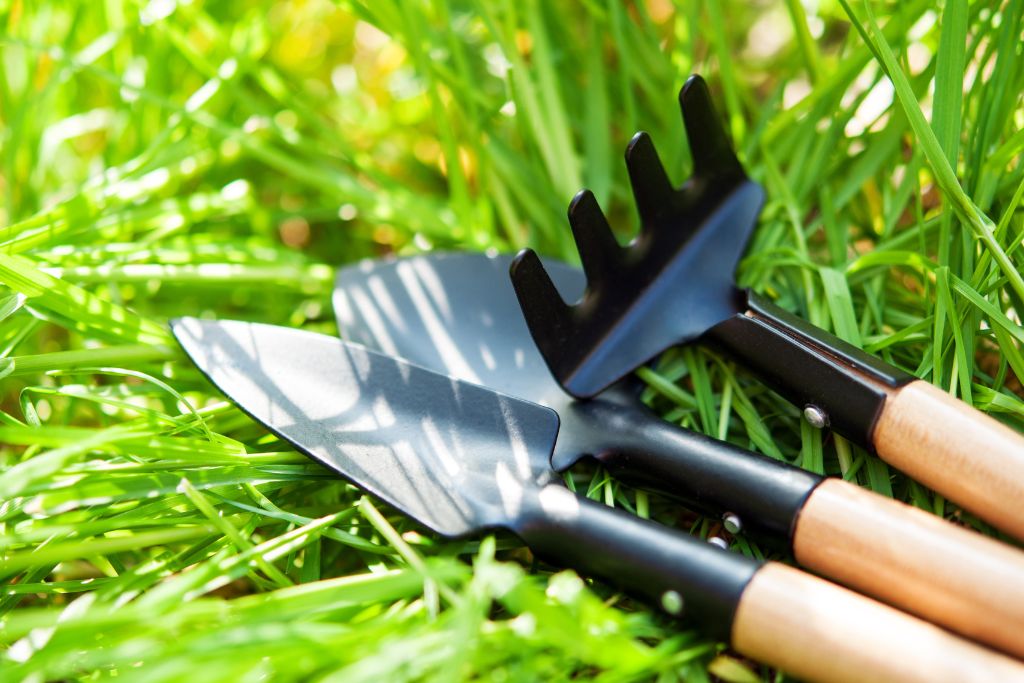
In today’s competitive gardening landscape, it’s crucial to optimize the health of your soil in order to flourish. One of the key ways to achieve this is by reducing harmful pests and soil-borne diseases that can be detrimental to plant growth. Surprisingly, copper gardening tools can play a significant role in addressing this issue.
Copper naturally boasts antibacterial and antifungal properties, meaning that by simply using copper gardening tools, you can help protect your soil from the spread of harmful pathogens. In fact, studies have shown that copper is effective in killing and inhibiting the growth of bacteria and fungi, leading to a healthier and safer ecosystem within your garden.
As you work the soil with your copper tools, you’re essentially applying a layer of defense against pests and diseases. Copper ions are released into the soil, creating an environment where these harmful organisms struggle to thrive. This ultimately aids in preventing the outbreak of common issues such as powdery mildew and blight – diseases that can be devastating for a garden if left uncontrolled.
Another benefit of using copper gardening tools is that they do not produce magnetic fields. Most conventional steel gardening tools tend to interfere with the natural magnetic field of the Earth, disrupting the environment and potentially attracting unwanted pests. As a result, these tools can contribute to an unhealthy garden in which plants struggle to grow. Copper gardening tools, on the other hand, help maintain the natural balance of your garden’s ecosystem, ultimately promoting healthier, more robust plants.
Additionally, the smoothness of copper tools compared to steel equivalents creates a more convenient option for gardeners. The reduced friction offered by copper translates to less soil sticking to the tool, which in turn allows for easier and more efficient work. This means you can dedicate more time to nurturing plants, rather than wrestling with stubborn dirt.
In conclusion, incorporating copper gardening tools into your gardening routine can be an effective way to reduce harmful pests and soil-borne diseases. Their natural antimicrobial properties, minimal disruption to the environment, and practical benefits make them valuable asset in maintaining the health and vitality of your garden. Invest in copper tools today, and watch your garden truly thrive.
Improving Soil Structure Through Aeration and Drainage
Copper gardening tools continue to gain popularity among professional gardeners and enthusiasts alike and for good reason. One of the key benefits these tools provide lies in their ability to improve soil structure through the promotion of aeration and drainage.
Healthy soil structure depends upon a continuous flow of air and water through the numerous pores and channels present in it. Proper aeration ensures that vital oxygen is made available to plant roots, allowing them to effectively absorb nutrients and undergo respiration. Drainage, on the other hand, enables excess water to escape, preventing waterlogging and anaerobic conditions that can lead to root rot and other plant diseases.
Copper gardening tools facilitate enhanced aeration and drainage in a few crucial ways:
1. Reduced Soil Compaction: Traditional gardening tools made of steel or iron may inadvertently compact the soil as they dig, delve, or cultivate. When soil particles are compressed, pores can collapse, hindering aeration and drainage. Copper tools, being made of a softer material, are gentler on the soil structure, making them perfect for use in maintaining the integrity of the soil.
2. Friction Reduction: The smooth and almost frictionless surface of copper tools creates an easy and effortless gardening experience. When these tools move through the soil, they leave minimal disturbance to the soil structure, preserving the essential air and water channels.
3. Encouraging Soil Aggregation: The presence of copper ions in the soil has been found to promote aggregation, a process in which smaller soil particles bind together to form larger, more stable structures. These aggregates contribute to increased porosity, resulting in better aeration and drainage.
4. Minimizing Root Damage: Copper tools with their sharp, well-defined edges offer gardeners greater precision and control, minimizing the likelihood of accidental root damage. In turn, this means healthier root systems that are better equipped to absorb nutrients and water from the soil.
5. Reducing Soil Erosion: Copper tools are less likely to erode soil compared to their steel counterparts due to their non-reactive nature. As a result, the soil remains more stable and retains its structural integrity, ensuring the essential aeration and drainage systems remain intact.
In conclusion, copper gardening tools represent a significant advancement in our ability to protect and improve soil health. By fostering optimal aeration and drainage, these tools create a favorable environment where plants can thrive, ensuring greater success in your gardening efforts.
Fostering Nutrient Uptake and Root Growth with Copper Gardening Tools
The use of copper gardening tools in the maintenance of your garden can lead to some significant improvements in the overall health of your soil. One of the primary ways in which these tools can benefit your plants is by fostering nutrient uptake and promoting healthy root growth. Let’s take a closer look at how these advantages are achieved through the utilization of copper gardening tools.
Copper is a trace element that is essential for optimal plant growth, playing a crucial role in various physiological processes. When copper gardening tools are used in soil preparation and cultivation, tiny amounts of copper particles are seamlessly introduced into the soil. These particles are then made available for root uptake, providing an additional source of this essential nutrient. This means that with the continual use of copper tools, the soil’s copper content gradually increases, thereby enhancing plant growth and health.
Not only do copper gardening tools introduce essential nutrients into the soil, but they also have a significantly positive impact on root growth. Copper is known to have an inhibitory effect on harmful microbes, many of which can hinder root development and restrict nutrient absorption. By using copper tools, you inadvertently help disrupt the growth and spread of these unwelcome microorganisms, protecting your plants from their adverse impact. As a result, your plants will have a more robust root network, leading to better nutrient absorption and improved overall soil health.
Another advantage of using copper gardening tools is their surprisingly low friction when working with soil. The tools glide through the ground smoothly, limiting root damage even when you’re cultivating or weeding close to the main root system. Undamaged roots are better equipped to absorb water and nutrients, ensuring the sustained growth, hardiness, and health of your plants.
In conclusion, investing in copper gardening tools can provide numerous benefits for the health of your garden’s soil, in particular fostering nutrient uptake and promoting root growth. The trace amounts of copper introduced into the soil, combined with the antimicrobial properties of copper tools, allow for a healthier and more robust root network. As your plants’ roots have better access to essential nutrients and adequate protection from harmful microbes, your garden will ultimately thrive. So go ahead and make the switch to copper tools – your plants will thank you for it.
Enjoying a Chemical-Free Garden by Reducing the Need for Pesticides and Fertilizers
As dedicated gardeners, we understand the desire to create a lush, healthy garden without relying on harsh chemicals or environmentally harmful products. Fortunately, the introduction of copper gardening tools can help minimize the need for pesticides and fertilizers, ultimately fostering a chemical-free garden for all to enjoy.
The use of copper gardening tools offers a natural deterrent to pests due to its inherent properties. When coming into contact with the soil, it creates a hostile environment for unwanted pests and fungi, which typically gravitate toward iron and steel gardening tools. By switching to copper, you’ll notice a significant decrease in pest-related problems without resorting to chemical solutions. Ultimately, the need for pesticides can be minimized, leading to a healthier garden in the long run.
In addition, copper gardening tools promote better soil health. As you work the soil with your copper tools, trace amounts of the metal mix with the soil, effectively feeding the earthworms and beneficial microbial life within the soil structure. This increased activity naturally aerates and enriches the soil, leading to improved overall soil quality.
Healthier soil not only reduces the need for synthetic fertilizers but also encourages stronger root development in your plants. This symbiotic relationship ensures your garden maintains optimum nutrient levels and a thriving ecosystem below the surface. With the application of chemical fertilizers, we risk washing away microorganisms that help sustain our gardens in a natural way. By reducing the use of these chemicals, you foster a balanced ecosystem within your green space.
With the unique benefits of copper gardening tools, you can enjoy the advantages of a chemical-free garden that is not only environmentally friendly but also promotes healthier soil and plant life. Experience the transformative effects of copper tools in your garden and embrace a more eco-friendly and sustainable approach to gardening.
Using Copper Gardening Tools: Tips and Recommendations
Copper gardening tools have emerged as an excellent alternative to traditional steel or iron tools due to their numerous benefits for soil health. In this section, we’ll explore some tips and recommendations on using copper gardening tools to enhance your gardening experience and promote healthier plants.
1. Choose the right tools for the job: Copper gardening tools come in a wide array of designs, suitable for various purposes. Common copper tools include trowels, spades, hoes, and forks, each with a specific function. For instance, a trowel is ideal for planting, weeding, and cultivating, while a spade or fork works best for digging and turning soil. Choose the appropriate tools for your gardening needs to optimize their benefits on soil health.
2. Use copper tools for cultivating the soil: One of the significant advantages of copper gardening tools is their ability to prevent compaction in the soil. While digging and turning the soil, make sure to use the copper tools gently, mixing the soil without breaking apart the natural structure. This will promote better aeration, root penetration, and drainage, which are essential for healthy plant growth.
3. Avoid overworking the soil: When using copper gardening tools, it’s essential to avoid overworking the soil. Overworking can strip the soil of its natural nutrients and damage its structure, impeding plant growth. Instead, focus on cultivating a few inches of soil at a time, which will encourage the development of healthy soil structure, promote better drainage and improve nutrient distribution.
4. Care for your copper gardening tools: Proper maintenance of copper tools is essential for preserving their efficiency and longevity. After using your copper tools, make sure to clean them thoroughly to prevent soil and debris buildup. Additionally, it’s recommended to regularly sharpen the edges of tools like spades and hoes to maintain their effectiveness. Lastly, store your copper tools in a dry, cool place to prevent oxidation and tarnishing.
5. Combine copper tools with organic soil amendments: To further improve soil health, consider incorporating organic soil amendments such as compost, manure, or mulch along with your copper gardening tools. These organic materials can help enrich the soil with essential nutrients, improve its drainage and aeration, and promote the growth of beneficial microorganisms.
6. Rotate your crops: Using copper gardening tools in tandem with crop rotation techniques can promote optimal soil health. By rotating different types of plants in your garden or planting area, you can lessen the strain on the soil, reduce the risk of pests and disease, and create more balanced nutrient levels.
In conclusion, using copper gardening tools can significantly improve your soil health when utilized with proper techniques and care. By following these tips and recommendations, you’ll be well on your way to cultivating a vibrant, healthy garden that will yield impressive results.
Content are generated with AI, fact checked by editorial team.
Hi there! My name is Aaron and I am a gardening expert from the United States. I have always had a passion for gardening and have been practicing it for years. I have gained extensive knowledge and experience in gardening.


